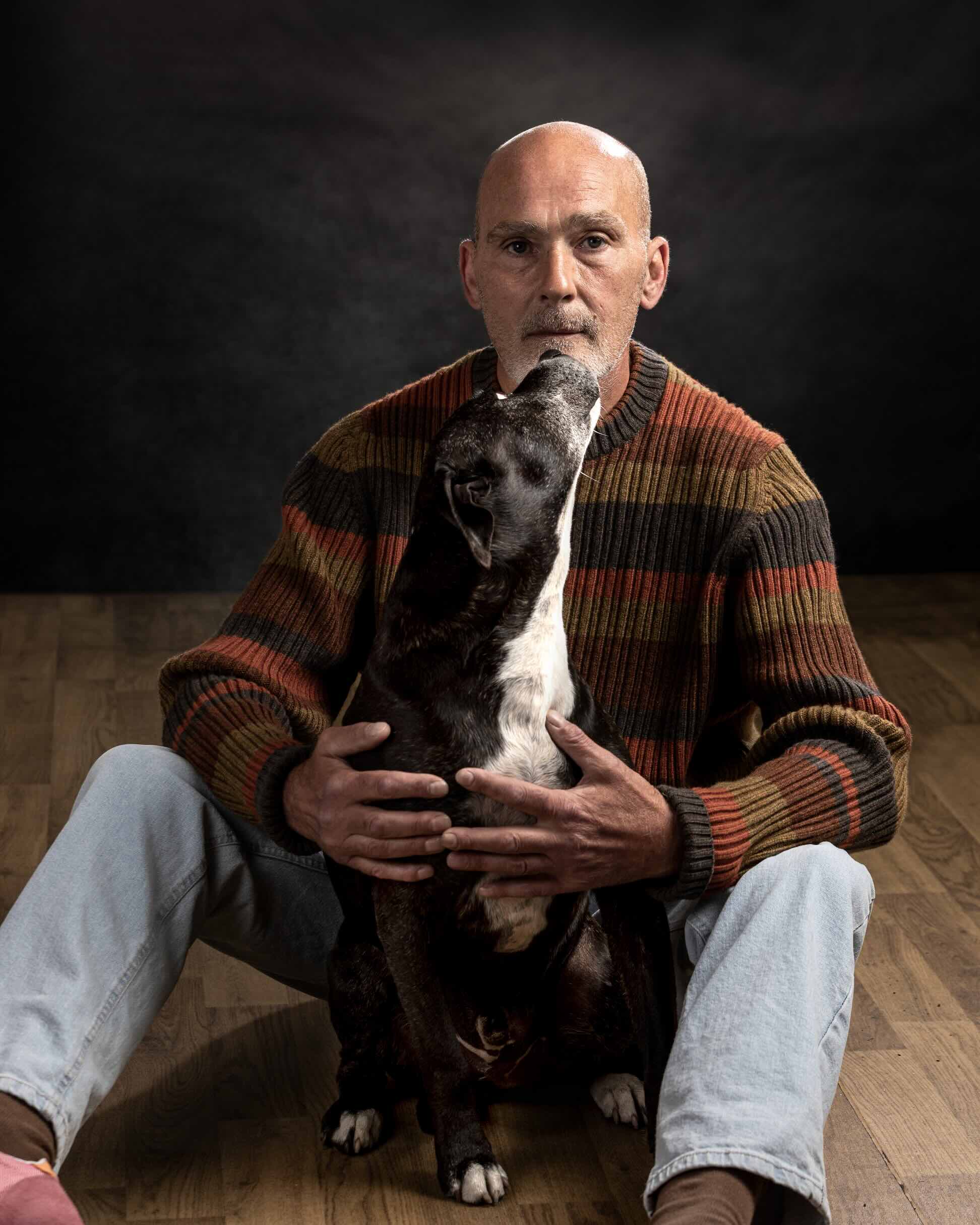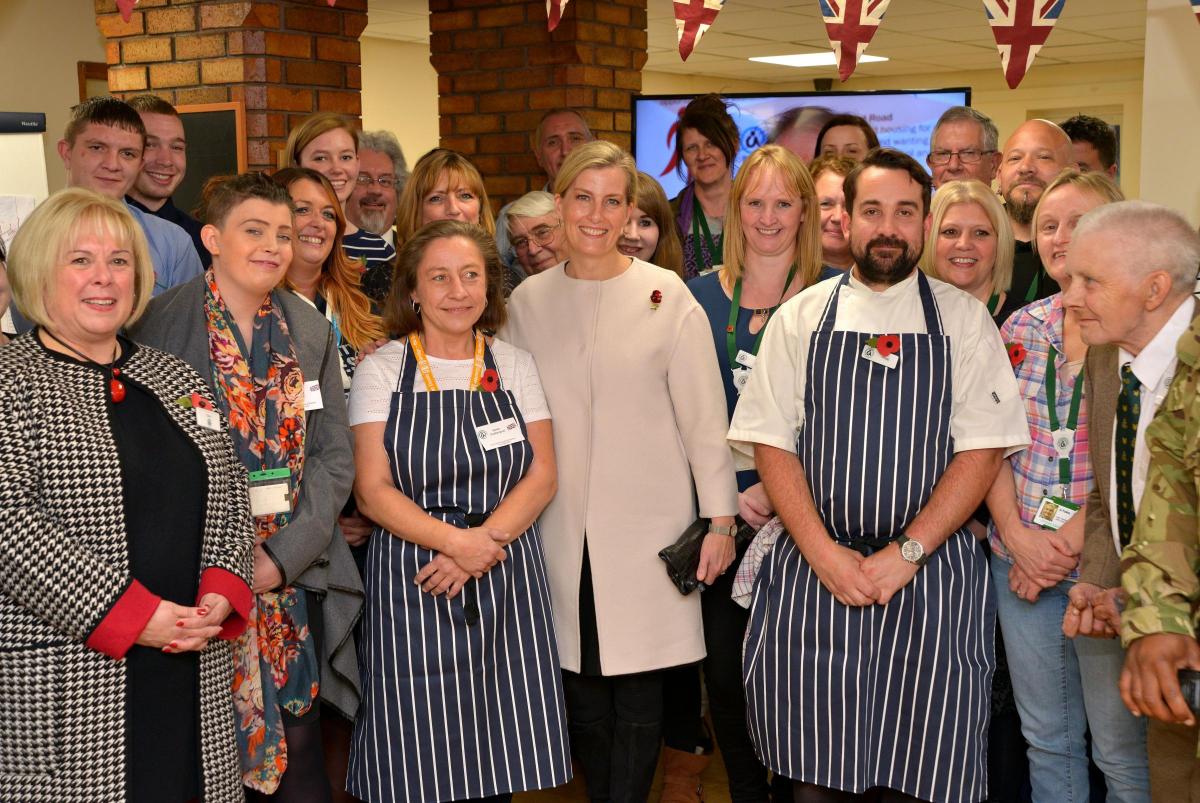
Action Not Words
We act in times of crisis
What Really Causes Homelessness, And How You Can Help
Homelessness is a complex and misunderstood issue. Countless misconceptions can prevent people from understanding its true nature or from offering support where it’s needed most.
By dispelling these myths, we can foster empathy and take meaningful steps towards creating solutions.
-
1+-
Homeless people always sleep on the streets
When we think of homelessness, the image that often comes to mind is someone sleeping rough on the streets. But this is only a fraction of the reality.
The majority of homeless people are part of what’s called the “hidden homeless” population. They may be sleeping in cars, staying in temporary or emergency accommodation, or sofa surfing with family or friends. For example, out of the 309,000 people experiencing homelessness in England at the end of 2023, only 3,898 were counted as rough sleepers on a single night.
Women, in particular, are less visible in rough sleeper counts, as they often use more hidden spaces like transport hubs to avoid the risk of violence. Some women find themselves trapped in unsafe housing environments, such as abusive relationships. At St. Paul’s Hostel, we strive to create a safe environment for all our residents.
2+-People are homeless because of addiction problems or poor life choices
Many factors lead to homelessness, and some are complex. Addiction and poor decisions can play a role in why people end up homeless; often, most homelessness is caused by life circumstances beyond a person’s control.
Key factors include:
- Lack of affordable housing: Rental prices have skyrocketed while wages have stagnated, leaving many unable to keep up.
- Mental health challenges: Lack of timely mental health support can worsen living conditions.
- Care leavers: Young people leaving care systems often face an uphill battle due to the lack of sufficient support networks.
For many, homelessness results from life events that can happen to anyone, such as job loss, illness, or domestic violence.
3+-People experiencing homelessness should just get a job
It’s easy to assume that gaining stable employment would solve the issue of homelessness. Still, the reality for many is the multiple barriers making it difficult for someone experiencing homelessness to secure and maintain a job.
For example:
- To apply for most jobs, you typically need a permanent address and a valid ID.
- The costs of attending interviews, such as paying for travel or appropriate clothing, can be prohibitive.
- Some employers are unaware they can legally hire people experiencing homelessness.
Furthermore, issues like zero-hour contracts and low wages contribute to the instability that many homeless individuals face. Efforts must be made to break down these barriers and create more inclusive employment opportunities.
4+-There are plenty of support services available to help the homeless
Charities like St Paul’s Hostel work tirelessly to provide support to those in need, and often, services such as ours are overstretched and underfunded.
For example, there are significant shortages in hostel spaces and safe temporary accommodation. Frontline staff regularly report difficulties in finding suitable housing for those in need, especially in areas where private rents are unaffordable.
Charitable organisations like St Paul’s Hostel play a vital role in providing grants and financial support to individuals and other charities, helping to bridge the gap in available services.
5+-Homeless people are dangerous
It’s a general misconception that homeless individuals are dangerous or violent. Many studies show that homeless people are much more likely to be victims of violence rather than perpetrators.
For example, people sleeping rough are 17 times more likely to experience violence than those in stable housing. The stigma surrounding homelessness makes it even more difficult for individuals to reintegrate into society, find work, or access support.
Making eye contact or engaging in conversation with someone who is homeless can go a long way in helping homeless individuals feel seen and valued. It’s those simple acts of kindness that go a long way.
When we think of homelessness, the image that often comes to mind is someone sleeping rough on the streets. But this is only a fraction of the reality.
The majority of homeless people are part of what’s called the “hidden homeless” population. They may be sleeping in cars, staying in temporary or emergency accommodation, or sofa surfing with family or friends. For example, out of the 309,000 people experiencing homelessness in England at the end of 2023, only 3,898 were counted as rough sleepers on a single night.
Women, in particular, are less visible in rough sleeper counts, as they often use more hidden spaces like transport hubs to avoid the risk of violence. Some women find themselves trapped in unsafe housing environments, such as abusive relationships. At St. Paul’s Hostel, we strive to create a safe environment for all our residents.
Many factors lead to homelessness, and some are complex. Addiction and poor decisions can play a role in why people end up homeless; often, most homelessness is caused by life circumstances beyond a person’s control.
Key factors include:
- Lack of affordable housing: Rental prices have skyrocketed while wages have stagnated, leaving many unable to keep up.
- Mental health challenges: Lack of timely mental health support can worsen living conditions.
- Care leavers: Young people leaving care systems often face an uphill battle due to the lack of sufficient support networks.
For many, homelessness results from life events that can happen to anyone, such as job loss, illness, or domestic violence.
It’s easy to assume that gaining stable employment would solve the issue of homelessness. Still, the reality for many is the multiple barriers making it difficult for someone experiencing homelessness to secure and maintain a job.
For example:
- To apply for most jobs, you typically need a permanent address and a valid ID.
- The costs of attending interviews, such as paying for travel or appropriate clothing, can be prohibitive.
- Some employers are unaware they can legally hire people experiencing homelessness.
Furthermore, issues like zero-hour contracts and low wages contribute to the instability that many homeless individuals face. Efforts must be made to break down these barriers and create more inclusive employment opportunities.
Charities like St Paul’s Hostel work tirelessly to provide support to those in need, and often, services such as ours are overstretched and underfunded.
For example, there are significant shortages in hostel spaces and safe temporary accommodation. Frontline staff regularly report difficulties in finding suitable housing for those in need, especially in areas where private rents are unaffordable.
Charitable organisations like St Paul’s Hostel play a vital role in providing grants and financial support to individuals and other charities, helping to bridge the gap in available services.
It’s a general misconception that homeless individuals are dangerous or violent. Many studies show that homeless people are much more likely to be victims of violence rather than perpetrators.
For example, people sleeping rough are 17 times more likely to experience violence than those in stable housing. The stigma surrounding homelessness makes it even more difficult for individuals to reintegrate into society, find work, or access support.
Making eye contact or engaging in conversation with someone who is homeless can go a long way in helping homeless individuals feel seen and valued. It’s those simple acts of kindness that go a long way.
Making a Difference
By debunking these myths, we can foster a deeper understanding and cultivate a more compassionate society. Meaningful change starts with awareness, but it doesn’t stop there. Here’s how you can help:
- Donate to organisations like St Paul’s Hostel that provide crucial resources to those in need.
- Advocate for better housing policies and mental health support in your local community.
- Offer small gestures of kindness, like a smile or a conversation, to someone you see experiencing homelessness.
Homelessness is a challenge that touches us all, either directly or indirectly. Together, we can break through misconceptions and support efforts to ensure everyone has access to stable, safe housing.
Our Approach
1.
Trauma Informed Care
The events that lead to someone becoming homeless are not always as clear as you might think. St Paul’s works tirelessly to help people live through homelessness, working with some of the most vulnerable members of society and in order to improve care and support, we embedded the ideas of Psychologically Informed Environments and Trauma Informed Care across the organisation resulting in significant improvements in outcomes.
Learn More2.
Psychologically Informed Environments
Many of the clients homeless services work with, seem to have difficulty managing their emotions, appear impulsive and do not consider the consequences of their actions. Some may be withdrawn, isolated and reluctant to engage or exhibit anti-social behaviour. The people we work with are often vulnerable and socially excluded.
Learn More3.
Adverse Childhood Experiences
Providing accommodation alone is not always the answer. Research shows that an individual’s homeless situation is very often the result of underlying causes and past experiences. Therefore by simply providing accommodation alone, addresses the symptom and not necessarily the cause.
Learn More

